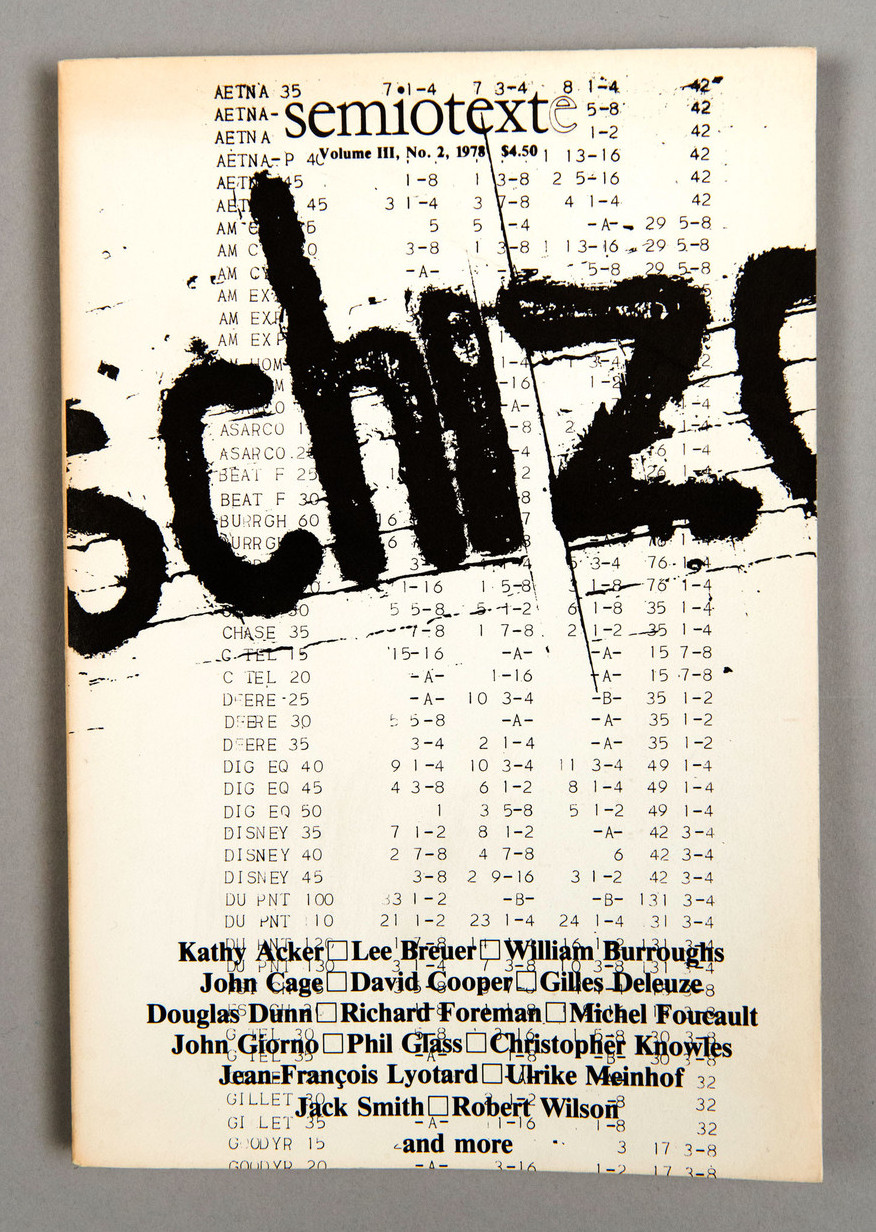Antiuniversity of London: Antihistory Tabloid (2012)
Filed under brochure | Tags: · aesthetics, anti-psychiatry, art, education, politics

“The Antiuniversity of London appears in many ways as a massive failure when looked at superficially. But whether it was a terminal failure or actually an experiment that did not succeed at its specific point in history depends on how you approach this historic anti-institution.” (from the Introduction)
Compiled and edited by Jakob Jakobsen
Publisher MayDay Rooms, London, 2012
ISBN 9781906496852
63 pages
Gary Genosko: Félix Guattari: An Aberrant Introduction (2002)
Filed under book | Tags: · abstract machine, anti-psychiatry, biography, deterritorialization, philosophy, psychoanalysis, schizoanalysis, subjectivity, transversality

This is the first detailed assessment of the life and work of Felix Guattari–“Mr. Anti” as the French press labelled him–the friend of and collaborator with Gilles Deleuze, Jacques Lacan and Antonio Negri, and one of the 20th Century’s last great activist-intellectuals. Guattari is widely known for his celebrated writings with Deleuze, but these writings do not represent the true breadth and impact of his thinking, writing and activism. Guattari’s major work as a clinical and theoretical innovator in psychoanalysis was closely linked to his participation in struggles against European right-wing politics. Felix Guattari introduces the reader to the diversity and sheer range of Guattari’s interests, from anti-psychiatry, to Japanese culture, political activism and his theorizing of subjectification.Highlighting why Guattari’s work is of increasing relevance to contemporary political, psychoanalytical and philosophical thought, Felix Guattari: An Aberrant Introduction presents the reader with an adventurous and provocative introduction to this radical thinker.
Publisher Continuum International Publishing Group, 2002
Transversals: New Directions in Philosophy series
ISBN 082646033X, 9780826460332
278 pages
Semiotext(e), 3(2): Schizo-Culture (1978)
Filed under journal | Tags: · anti-psychiatry, capitalism, linguistics, literature, philosophy, politics, power, psychoanalysis, schizoanalysis, schizophrenia, semiotics

“Semiotext(e) began in 1974 as a journal started by French philosopher Sylvère Lotringer in an effort to bridge radical French theory and the intellectual and art worlds of New York City. The original editorial board included ten people, mostly graduate students at Columbia University where Lotringer teaches, who chipped in fifty dollars apiece to get the journal started. They held their first conference in 1975: the Schizo-Culture conference on prisons and madness. Speakers included Gilles Deleuze, Félix Guattari, Michel Foucault, and Jean-François Lyotard, now all staples of the Semiotext(e) backlist.” (from Wikipedia)
With contributions by Kathy Acker, Lee Breuer, William Burroughs, John Cage, David Cooper, Gilles Deleuze, Douglas Dunn, Richard Foreman, Michel Foucault, John Giorno, Phil Glass, Christopher Knowles, Jean-Francois Lyotard, Ulrike Meinhof, Jack Smith, Robert Wilson, and others.
Edited by Sylvère Lotringer
Publisher Semiotext(e), New York, 1978
ISSN 00939579
221 pages
PDF (8 MB, updated on 2013-12-8)
See also Semiotext(e), 3(1): Nietzsche’s Return (1978).
Comments (2)
